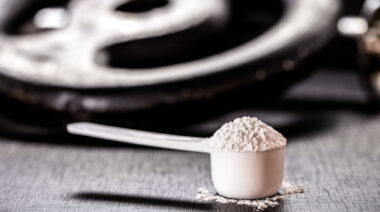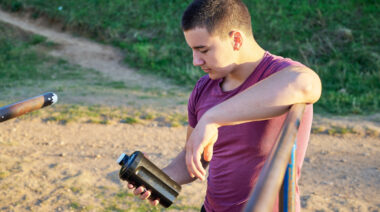Creatine is a great supplement. It belongs on anyone’s top five supplements list if not top two or three. It’s fairly cheap, it’s proven effective at promoting better strength and endurance in adults of every age, and heck it even helps your brain function. Its benefits are fairly uncontroversial and its pitfalls are few.
Now you may have heard some rumors about dangers surrounding the use of creatine and most of these are largely unsubstantiated. In fact, it’s pretty much the opposite. Many studies have documented the safety of this supplement. However, a recent study in the Journal of the International Society of Sports Nutrition shed some light on one particular issue that may be of some concern.
The use of creatine seems to have an impact on your antioxidant status. If you read my recent article about supplementing with colostrum, then you know that it’s important to balance antioxidant intake with the intensity of your exercise. Basically, exercising causes the promotion of free radicals and other substances that reduce your body’s ability to protect you from diseases like cancer. Antioxidants keep your body’s defenses against these harmful substances going strong, and thankfully, you can successfully supplement with antioxidants to help. Adequate sleep and dietary nutrition will also have a major impact here.
In the study, the researchers found that while creatine supplementation substantially improved the participants’ strength compared to control subjects, it also reduced their total antioxidant capacity. While this could have partially been a result of their increased strength, it’s more likely a result of the creatine itself. There was also an increase in uric acid present, which is a marker of oxidative stress. So, the results from taking creating were more strength, more stress, and reduced ability to handle that stress.
The researchers indicated that further research in this area would be useful. Keep in mind that all other health markers remained normal, and there may be some conflicting evidence out there. That said, it seems fairly clear there could be a possible detriment to taking this otherwise great supplement.
One recommendation I have is to review the results of the prior article I mentioned above regarding colostrum. The detriments of oxidative stress can be dealt with for those who take the time to ensure they are getting adequate dietary and supplemental antioxidants. Keeping the rest of your life stress free, getting enough sleep, and living an otherwise healthy lifestyle will probably largely mitigate any negative effect of taking creatine. And that leaves only the positives.
References:
1. Sandro Percário, et. al., “Effects of creatine supplementation on oxidative stress profile of athletes,” Journal of the International Society of Sports Nutrition 2012, 9:56
Photo courtesy of Shutterstock.






